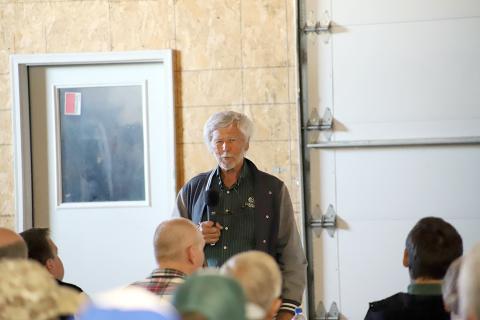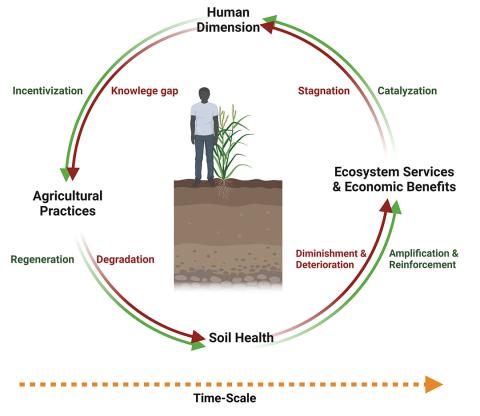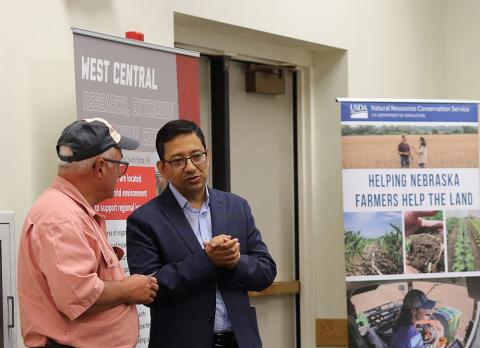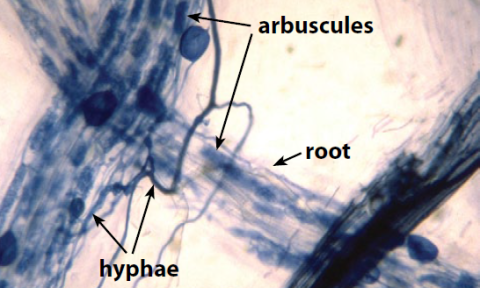
The University of Nebraska, the Natural Resources Conservation Service, and Nebraska farmers and ranchers are participating in a state-wide effort to enhance the adoption of soil health and rangeland health management systems through the Soil Health Demonstration Farms and Ranch Initiatives. These initiatives will establish in-field management comparisons across the state to showcase grazing management and cropping system comparisons.
The purpose of these efforts is to demonstrate Soil Health Management Systems applicable to various regions of Nebraska. This will allow farmers across the state to have a local opportunity to experience the results of soil health focused management first hand.
The producers in this initiative are conducting strip trials of various cover crops, crop rotations, and/or management techniques in a field-wide treatment. These farmers are demonstrating the use of a Soil Health Management System by planting cover crops and implementing any other supporting conservation practices. Each comparison topic was selected in collaboration with the local farmer in order to support them in answering a question they had about cover crops and soil health.
Data pertaining to the economics and soil resiliency are being tracked throughout each five year demonstration. Snapshots of change are developing as these comparisons get under way and will be developed into case study reports for dissemination. These snapshots will showcase the analysis and highlight the short and long term costs and benefits of building soil health.
Related Articles

Turk Investigating Soil Health Over Time, a Key to Climate Resilience Strategies



